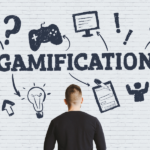How hard is it for a company to hire a new employee from a shortlist of good candidates in an effective and efficient way?
Just think if that could now be easier, accurate, and fast.
Not fantasy, but reality.
The modern marketing & advertising scene is growing rapidly and sees emerging professions and opportunities on one hand and new professionals entering the marketplace on the other. Degrees, certificates, courses, workshops and more crowd the CVs, making it hard for Companies during a screening process to understand what people can really do. In the jungle of certificates, there is a need to discover candidates’ abilities and verify them.
On its final steps for shortlist candidates, the recruiting process usually involves a proof of ability that goes beyond the self-declared experience in the CV. In bigger companies, usually, general talent acquisition asks vertical managers to produce skill tests based on a specific task. So the vertical manager needs to think of a brief and submits it to each of the shortlist candidates. These tasks are usually performed via XLS or PPT, and it means that the vertical manager needs to manually review candidate task submissions one by one.
Imagine if a tool could automate this process, and allow vertical managers to simply assign candidates a Challenge and a deadline. In this scenario, the aforementioned tool would do the rest and deliver the benchmarked candidates’ results to the managers.
The GAMS platform is the ally Companies may need in order to speed up the hiring process and pick the best candidate for a MadTech role in only five days’ time with extraordinary accuracy, making a small investment for a long-term result. The Challenge Assessment tests offered by GAMS are based on Validation Challenges which are able to test candidates’ technical skills, also giving a clearer overview of how hard and soft skills are combined in every candidate.
How do the GAMS Challenge assessment tests work?
GAMS offers Companies Validation Challenge Assessments in order to check candidates’ skills and make informed choices. The Assessments are based on Challenges, practical tasks and scenarios that are realized by a pool of experts, which consist of a series of steps to gauge on the platform in order to gain a score, linked to a specific hard skill. The Challenge score is the most interesting part for Companies because it shows candidates’ abilities and knowledge applied to probable scenarios related to specific hard skills. The final score is collected in a certificate, the Profile Scorecard, which combines candidates’ abilities into meta-skills.
Meta-skills represent the aggregation of several hard skills into a generic category and, in this specific case, validate the candidates’ attitude towards MadTech tools. To give an example, “Data-sorting” is one of the meta-skills evaluated in GAMS that represents the ability, more generally, to perform sorting activities when using a Web Analytics tool thanks to the platform sandbox.
The available options for Companies that adopt the GAMS Validation Challenge Assessment are the following:
- Standard Validation Challenge Assessment – Companies can choose between the pre-built GAMS Challenges that match their requirements for the job vacancy and testing with the most common sandbox tools (e.g. Google Analytics, Facebook Ads, Ad Servers, etc.). As Challenges are based on meta-skills, they are transversal and can be used for testing many roles.
- Custom Validation Challenge Assessment – Companies can fully customize the Challenges with GAMS for specific needs. To this extent, the Assessment would involve a two-week building stage. Additionally, custom Challenges can be built on specific digital MadTech platforms the company is using, e.g. a custom Challenge on Salesforce CRM.
How has GAMS been useful for adidas?
adidas was looking for a mid-level Assistant Programmatic Display Manager to join their team, facing the difficulty of having a clear view of their shortlist candidates’ hard skills to best fit the role. The entire process involved a few steps.
- Challenge Assessment construction
We proceeded with a Standard Validation Challenge Assessment by discussing with Noemi Nicastro (Senior Paid Social & Display Manager at adidas) which Challenges might line up for the job role required. A selection between four Campaign Management Challenges and two from the Web Analytics ones made up the test.
- Challenge Assessment execution
The test was submitted to four candidates already shortlisted from the adidas team, who came from different roles and had different levels of experience for the required job. GAMS collected candidates’ names and email addresses to open the individual accounts and licenses, so they could execute the pre-built Challenges on their own.
- Results collection and issuing Profile Scorecards
Individual results, based on the Challenges’ performance score, were collected and returned to the Company in the Profile Scorecards, the certificates stating candidates’ hard skills on the tested tools.
- Consultation and Score Analysis
Having the Profile Scorecards as the outcome of the process, the results were discussed and analyzed with the adidas team, further investigating the individual steps, timing, and scores collected through the GAMS platform during the test performance.
- Candidate selection
The adidas team could eventually select the best candidate for the role based on a comparison between the performance and the result on the Profile Scorecard, which gave a real contribution to the final hiring.
The process only lasts five days, giving the Company a clear and fast overview of candidates’ skills that was useful for enlightening and confirming the recruitment based on other previous aptitude tests.
The consultation stage is a very interesting moment for a Company, as it also allows to spot some behavioural patterns, such as precision that increases at every step for a candidate, while this doesn’t happen for someone else. Another example is about observing the attention to detail in executing tasks while a countdown is on, so someone may keep focused during the test or not.
adidas could finally evaluate its candidates and decide to hire one of them, fulfilling its specific needs for the role. The experience is reported by the Company in this way:
“I really appreciated the approach of the GAMS team during the initial phase of the collaboration. They acknowledged the needs of my team thoroughly, asking a lot of questions with the goal of understanding what kind of candidate we were looking for. They explained how the platform works and how the different assessments were built.
After shortlisting the candidates, GAMS collected candidates’ emails for granting them access. Then they easily completed the assessments in a pretty short time. The GAMS team elaborated the data and set up a session to guide me through each applicant’s results. I was very impressed with the level of detail coming from the scores.
Thanks to the outcome, I had a better overview of the candidates and enough insights to make the right decision. During the final round of interviews I also requested feedback from the candidates who were very enthusiastic: they told me it was fun but also very challenging.”
(Noemi Nicastro – Senior Paid Social & Display Manager)







